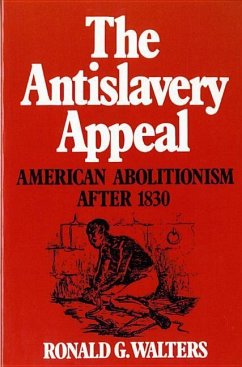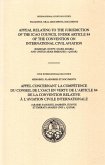"A fresh and provocative contribution . . . . the clearest, most penetrating, and best-informed study of the post-1830 antislavery movement that exists." Richard Bardolph, North Carolina Historical Review
"In this small but elegant book, Professor Walters approaches the interpretation of antislavery from a fresh vantage point . . . he asks new questions of old sources and comes up with novel and convincing interpretations . . [He] has allowed us to see antislavery as an organic outgrowth of American values and institutions." -Gerda Lerner, New York Historical Society Quarterly "Penetrating insights are sprinkled generously throughout, and monographic studies of abolitionism should take a new turn, now that Walters has shown how to perceive it in terms of symbols, perception, culture in general." -Aileen S. Kraditor, Journal of Southern History "A masterful picture of the milieu in which [antislavery] operated." -Robert V. Sparks, New England Quarterly "[A] wide-ranging, scintillatingly written analysis of abolitionist thought, perception, and feeling. Like all highly original, interdisciplinary ventures in scholarship, The Antislavery Appeal is bound to provoke controversy even as it stimulates thinking in many new directions . . . . All [scholars] will thank him for enlivening and enriching the study of pre-Civil War reform." -James brewer Stewart, Wisconsin Magazine of History
Hinweis: Dieser Artikel kann nur an eine deutsche Lieferadresse ausgeliefert werden.
"In this small but elegant book, Professor Walters approaches the interpretation of antislavery from a fresh vantage point . . . he asks new questions of old sources and comes up with novel and convincing interpretations . . [He] has allowed us to see antislavery as an organic outgrowth of American values and institutions." -Gerda Lerner, New York Historical Society Quarterly "Penetrating insights are sprinkled generously throughout, and monographic studies of abolitionism should take a new turn, now that Walters has shown how to perceive it in terms of symbols, perception, culture in general." -Aileen S. Kraditor, Journal of Southern History "A masterful picture of the milieu in which [antislavery] operated." -Robert V. Sparks, New England Quarterly "[A] wide-ranging, scintillatingly written analysis of abolitionist thought, perception, and feeling. Like all highly original, interdisciplinary ventures in scholarship, The Antislavery Appeal is bound to provoke controversy even as it stimulates thinking in many new directions . . . . All [scholars] will thank him for enlivening and enriching the study of pre-Civil War reform." -James brewer Stewart, Wisconsin Magazine of History
Hinweis: Dieser Artikel kann nur an eine deutsche Lieferadresse ausgeliefert werden.


![The Crisis in B.C. [microform]: an Appeal for Investigation The Crisis in B.C. [microform]: an Appeal for Investigation](https://bilder.buecher.de/produkte/65/65561/65561445m.jpg)





